You shouldn't keep these objects by your pillow – they might be impacting your sleep
Think twice before keeping these objects by your pillow when you sleep

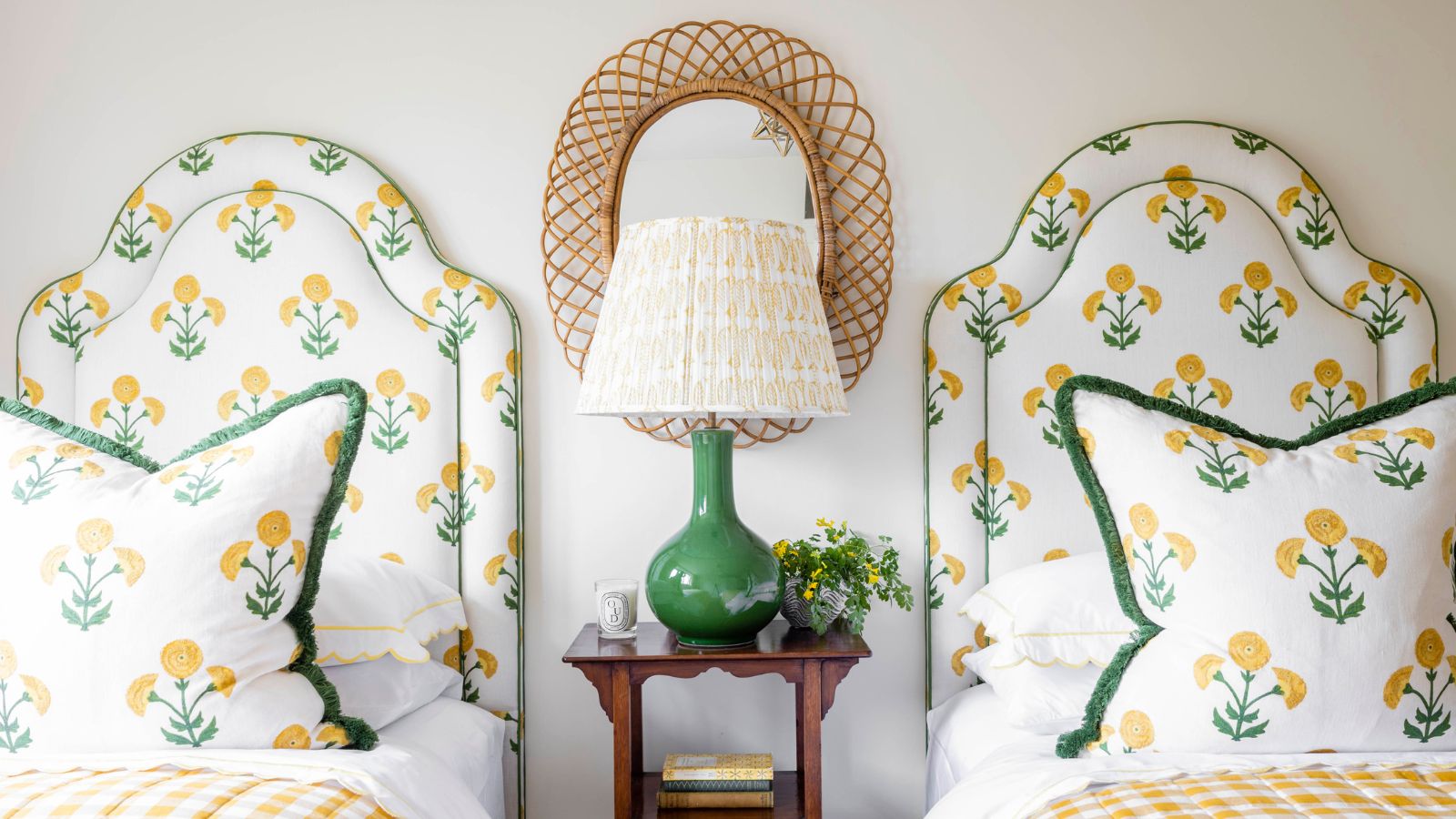
Design expertise in your inbox – from inspiring decorating ideas and beautiful celebrity homes to practical gardening advice and shopping round-ups.
You are now subscribed
Your newsletter sign-up was successful
Want to add more newsletters?

Twice a week
Homes&Gardens
The ultimate interior design resource from the world's leading experts - discover inspiring decorating ideas, color scheming know-how, garden inspiration and shopping expertise.

Once a week
In The Loop from Next In Design
Members of the Next in Design Circle will receive In the Loop, our weekly email filled with trade news, names to know and spotlight moments. Together we’re building a brighter design future.

Twice a week
Cucina
Whether you’re passionate about hosting exquisite dinners, experimenting with culinary trends, or perfecting your kitchen's design with timeless elegance and innovative functionality, this newsletter is here to inspire
It's a known fact that how we decorate our bedrooms can profoundly impact how these spaces make us feel and the quality of our rest. But did you know that the items you keep by your pillow and the nightly rituals you partake in can also impact your sleep?
Whether it's kicking your sneakers off as you climb into bed or endlessly scrolling on your cell phone, there are certain items and actions that we could all benefit from keeping out of our sleeping spaces.
Below, we look at 4 objects you shouldn't keep by your pillow, according to global superstitions and cold hard facts.
Objects you shouldn't keep by your pillow
It goes without saying that your bedroom layout is profoundly personal, and what works for one person may not work for the next. But as a rule of thumb, these are the four objects that you may want to think twice about keeping close to your pillow on a nighttime:
1.Sharp Objects
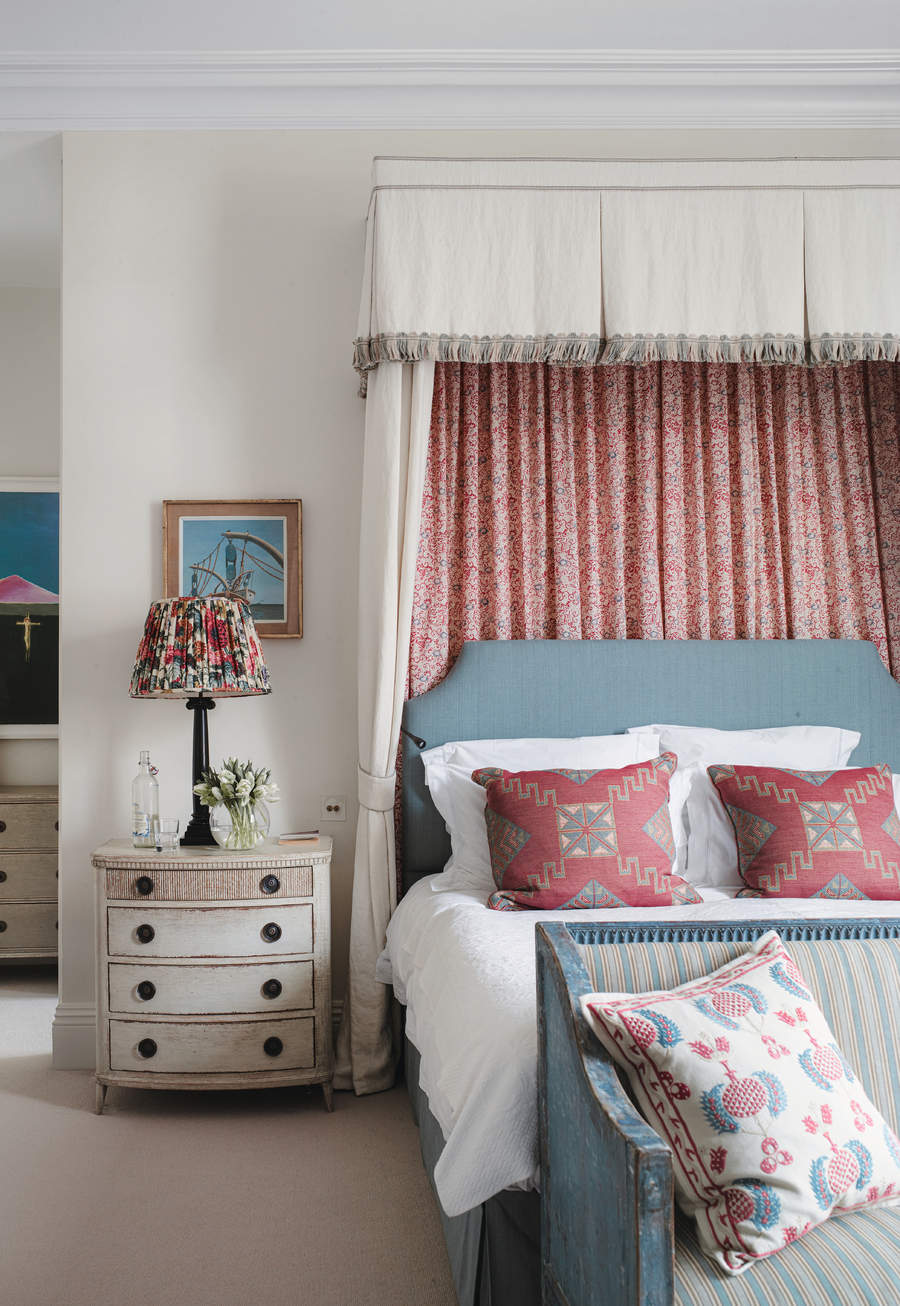
Keeping sharp objects like knives or scissors away from our sleeping spaces is more than just a practical safety measure. The tradition of removing sharp objects from our nightstands is grounded in the belief that these items can disturb the energy required for a restful sleep.
This concept is echoed in the principles of bedroom Feng Shui. According to this ancient Chinese philosophy, sharp objects emit 'sha chi' or negative energy, which can interfere with the flow of 'chi', or life force, within the bedroom. So, by removing sharp objects from your bedroom, you can set yourself up for a more restorative night’s sleep.
2. Books or Electronics
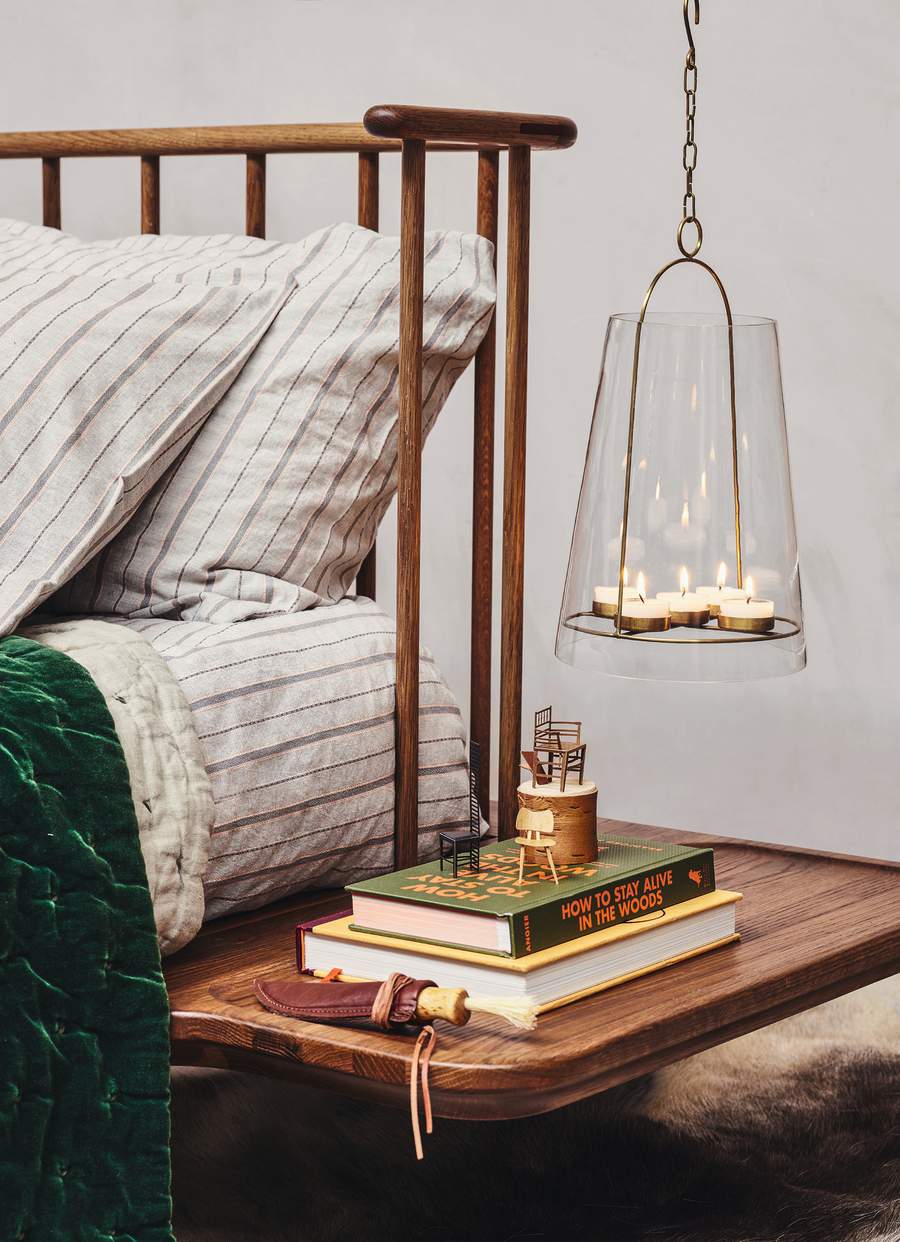
Many of us enjoy reading a book or scrolling through our phones before bedtime, but this can have a surprising impact on our dreams and subconscious minds. The stories and information absorbed from these activities can sometimes shape the narratives of our dreams and affect the quality of our sleep. So, perhaps think twice about reading a thriller shortly before bed or keeping it on your nightstand.
Design expertise in your inbox – from inspiring decorating ideas and beautiful celebrity homes to practical gardening advice and shopping round-ups.
While books can stimulate our imagination, the blue light from phone screens is scientifically proven to disrupt our sleep patterns and affect sleep quality. Similarly, the content you consume, like social media or unsettling news, can linger in your thoughts and influence what you dream about. So to fall asleep fast, it is recommended that you stop looking at your phone an hour before sleep. Better still? Have a digital-detox and stick to light bedroom reads instead!
3.Shoes
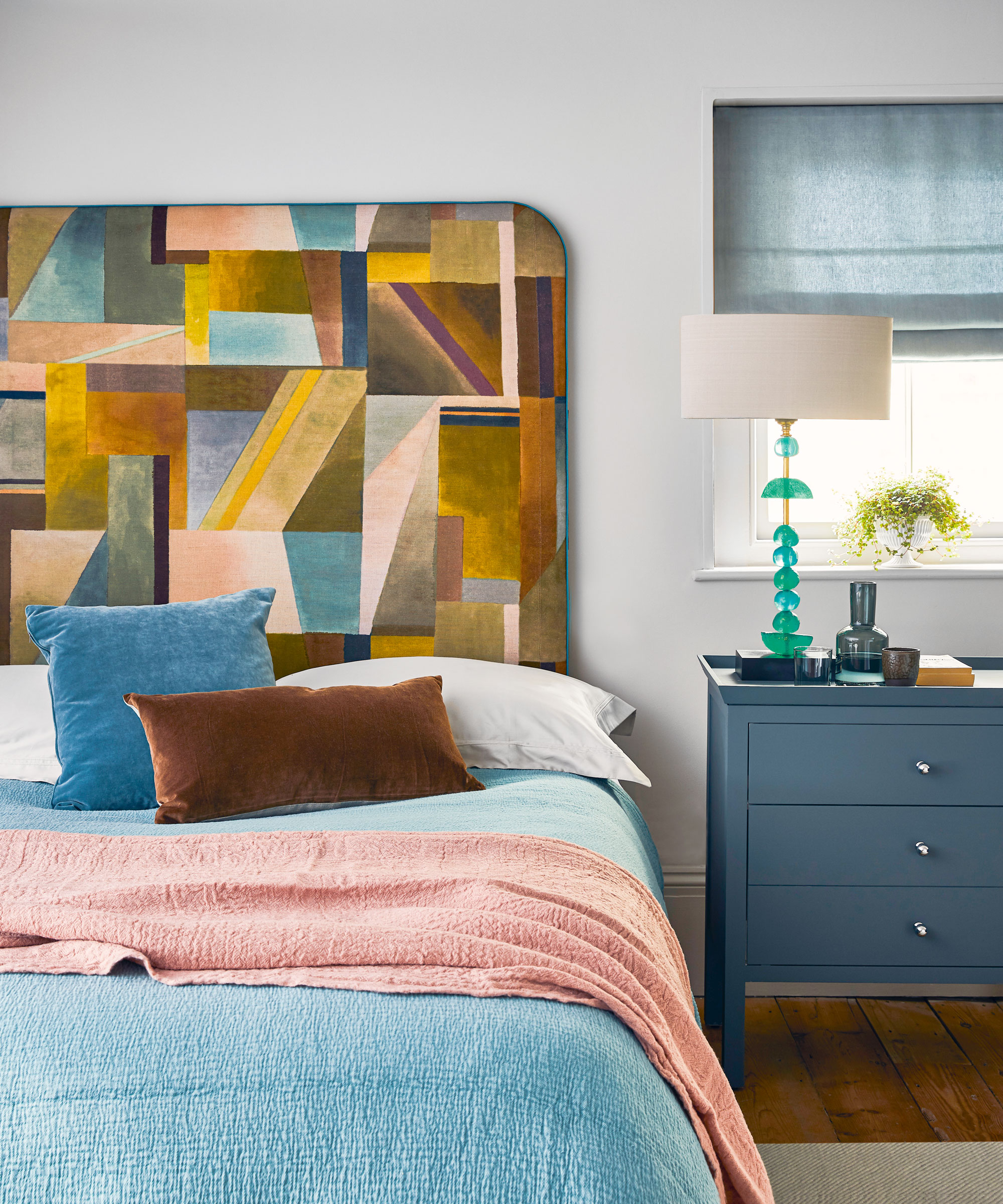
Across the globe, plenty of wisdom can be found about keeping shoes away from our beds, much of which seems to be rooted in a shared concern for cleanliness and the ‘spiritual integrity’ of our sleep spaces.
In both Japan and throughout Scandinavia, it's common for people to remove their shoes before entering a home. This speaks to both cultures' deep reverence for maintaining clean and sacred living environments, and this respect is naturally extended to the bedroom. Because the bedroom is viewed as a sanctuary for rest and rejuvenation, it should be undisturbed by external influences. Shoes – which serve as a constant reminder of the outside world – are, therefore, a no-no.
Of course, from a practical perspective, sleeping with shoes by your bedside can also present a tripping hazard. Likewise, no one wants to be walking muddy boots across a clean bedroom rug, so learn a lesson from Japanese homes and leave your shoes at the door.
4. Mirrors
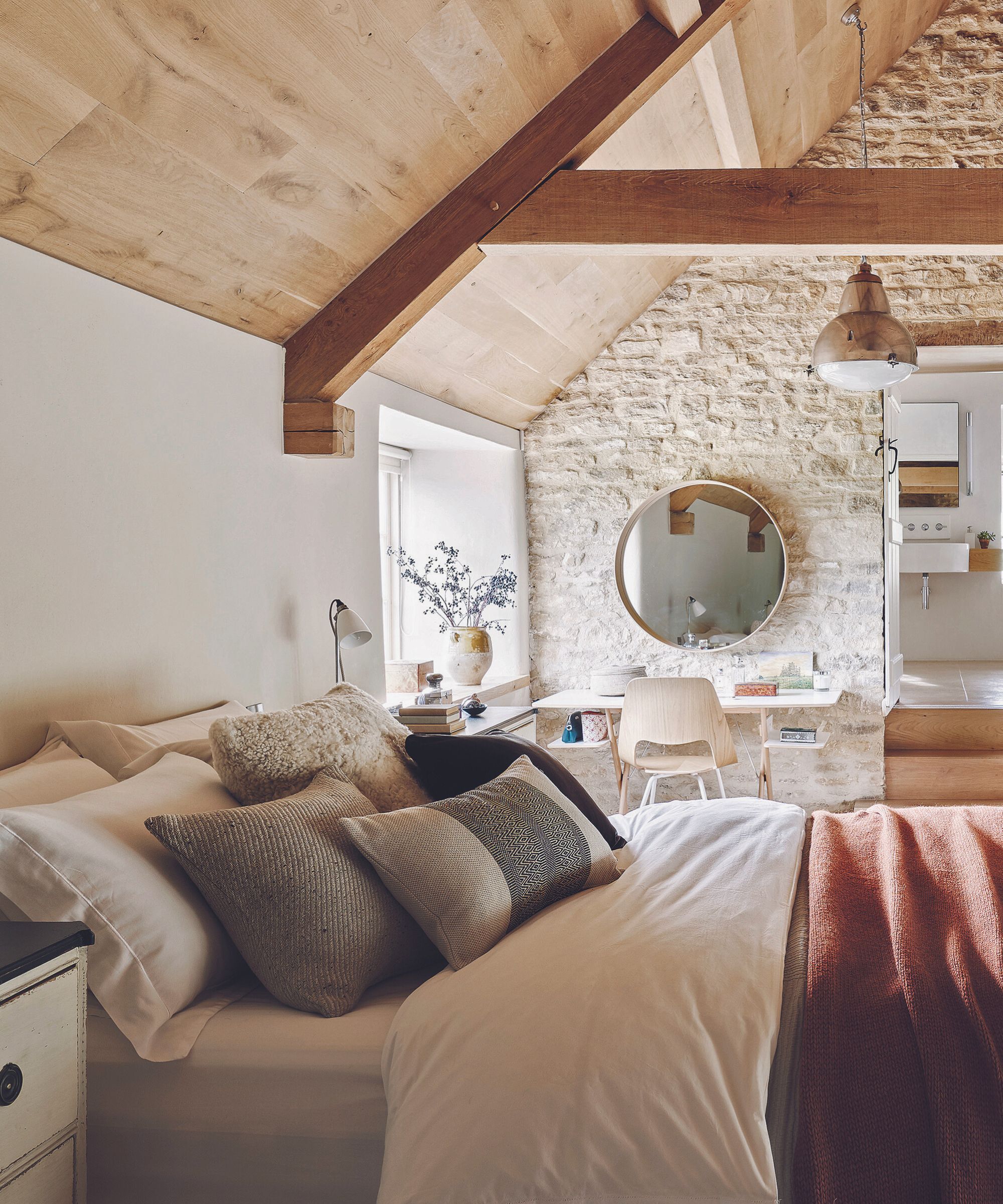
There is plenty of folklore and superstition surrounding mirrors in the bedroom. Throughout history, mirrors have held various symbolic meanings. For example, in the 1800s, mirrors were considered portals to other realms that could attract or trap unwanted spirits. In Britain and parts of the US, this led to the practice of covering mirrors in a house when someone died to prevent the deceased’s spirit from getting trapped (especially in the bedroom, where many sick people spent their final days).
Feng Shui mirror rules discourage placing a mirror opposite a bed, as it is believed that they reflect energy back at us while we sleep, leading to restless nights and disturbing our slumber. Similarly, mirrors are thought to bounce all kinds of energy, not just light, creating an active energy that can be too stimulating for a restful bedroom environment.
On a more practical note, having a mirror positioned next to you as you sleep can be unsettling for many people. Waking up in the middle of the night to see one’s reflection can be disorienting or even frightening!
Other popular home superstitions include blowing cinnamon through your front door and painting your porch ceiling blue. Whether or not these practices truly impact our lives remains to be seen, but their origins are fascinating nonetheless!

Gabriella is a freelance contributor for Homes & Gardens. She is a DIY enthusiast and a lover of all things interior design, often found antiquing or browsing the aisles of her local hardware store. She has a particular passion for historic buildings and is in the process of renovating a Victorian coachhouse in the countryside.
For much of the past decade, Gabriella has worked as a freelance writer, crafting copy for national publications and renowned homeware brands. Most recently, she worked for Homebuilding & Renovating Magazine and is the former Head of Solved at Homes & Gardens, focusing on case studies for the magazine and website, as well as writing features about issues surrounding historic and listed building projects.